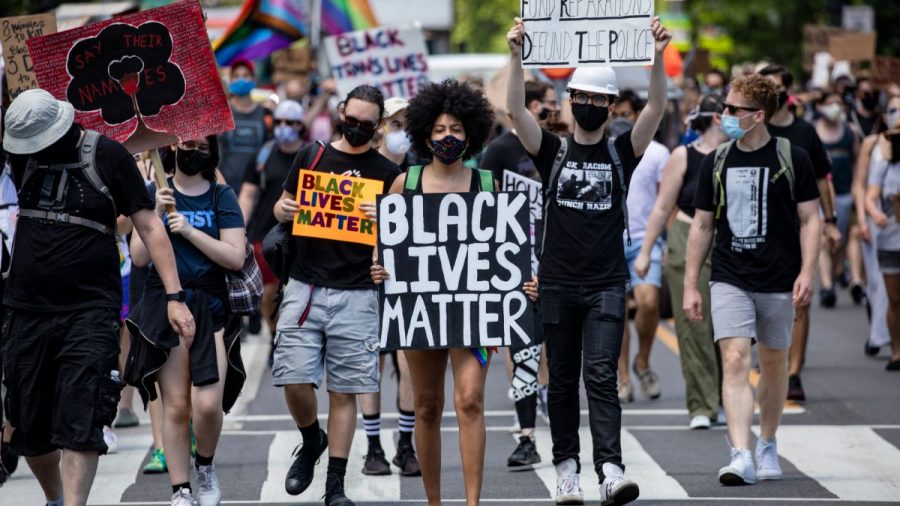The History of Systemic Racism and Black Lives Matter
January 8, 2021
Black Lives Matter. One might think Yea, no one said they didn’t but, in fact, in a variety of ways American society has displayed the contrary. Though people will rarely say “Black lives do not matter,” institutions and their discriminatory aspects say it loud and clear. People of color are discriminated against by police officers, medical professionals, educators, political officials, the prison system, and so much more. Racial prejudice in major systems is a global narrative saying Black lives do not deserve as much as white lives. One of the biggest reasons discrimination is ingrained into every national structure is systemic racism–the systemic oppression of people of color in America as a result of generations of normalized inequity having bled into modern national institutions.
However, one cannot blame “the system.” The system did not charge the Central Park Five with rape after they were all proven innocent. The system did not call pregnant Serena Williams “confused” when she rushed with concern to the hospital knowing something was wrong that could harm her unborn child. The system did not hold its knee on George Floyd’s neck for over eight minutes, even after he had clearly stopped breathing. It is the people who work for or do not combat systems that are the real issue. The system is not broken, in fact, it is doing exactly what it was put in place to do: uplift white people at the expense of people of color. Systemic racism, though it can be defined as oppression by an institution, is the unjust treatment of people of color by white people who refuse to condemn normalized racist actions or perceptions. Therefore, because the system is not actually broken, we must pinpoint, dismantle, and rebuild American institutions in order to create a nation that is equal and safe for people of all backgrounds.
But do not think people are not working towards this goal, they are. There are multiple movements and organizations fighting for racial equality in every aspect–the most well known being Black Lives Matter (BLM). Black Lives Matter is a decentralized political and social movement advocating for non-violent civil disobedience in protest against racially motivated violence against Black people, particularly police brutality. Within the last few months, the Black Lives Matter movement has become increasingly publicized; however, police brutality has not become more common, it is just happening in a digital world where everything is filmed. Those against Black Lives Matter–All Lives Matter (ALM) supporters–are a prime example of modern white supremacy. ALM supporters assert that one should not say “Black Lives Matter” because all lives matter. BLM supporters refute this idea with the statement that Black lives are included in all lives and that the statement “Black Lives Matter” does not claim any other life does not matter. BLM supporters’ rebuttal shows that ALM supporters are only saying “All Lives Matter” in an attempt to gain supremacy over Black lives and numb Black experiences.
The Black Lives Matter movement, though increasingly politicized, is not a political ideology. Black Lives Matter is a moral fight. Black Lives Matter is a fight for equality, for safety, and for peace.
Sources to support BLM:
- DONATE DIRECTLY TO BLM : https://secure.a
- ctblue.com/donate/ms_blm_homepage_2019
- NATIONAL PETITION AGAINST POLICE BRUTALITY : https://www.change.org/p/national-action-against-police-brutality-and-murder
- PETITIONS AGAINST INSTANCES OF MASS INCARCERATION : https://www.change.org/t/mass-incarceration-en-us
- DONATE TO SAVING PERVIS PAYNE : https://ca.gofundme.com/f/set-pervis-payne-free/donate
- JUSTICE FOR BREONNA TAYLOR : https://www.change.org/p/andy-beshear-justice-for-breonna-taylor?source_location=petitions_browse
Sources for other activism:
- DONATE TO THE YEMEN CRISIS : https://support.savethechildren.org/site/Donation2?df_id=1620&1620.donation=form1
- DONATE TO MUSLIMS IN CHINESE CONCENTRATION CAMPS : https://www.saveuighur.org/donate/
- TRANS RIGHTS PETITIONS :


